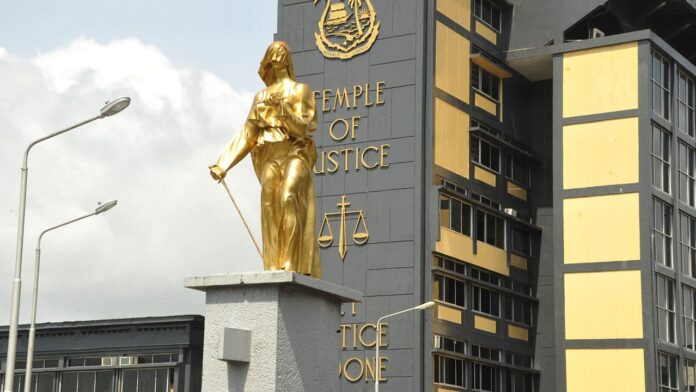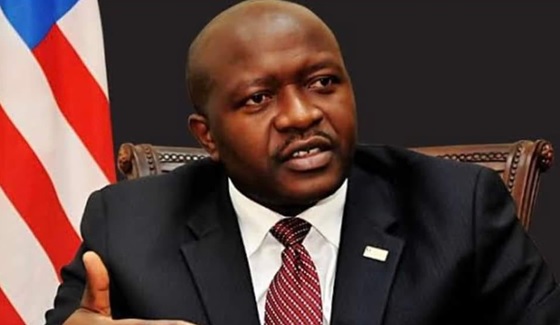MONROVIA, LIBERIA – The long-awaited ruling in the constitutional battle within the House of Representatives has finally been delivered by the Supreme Court of Liberia, but it leaves the nation’s lawmakers in suspense, as the Court avoided making a definitive decision on who holds the rightful claim. The case, titled In Re: The Unconstitutionality of Several Actions Taken by Certain Members of the House of Representatives, had drawn significant attention as it involved internal dissensions that threatened to disrupt the functioning of Liberia’s legislative body.
The Court’s ruling, handed down on December 6, 2024, addressed various legal and constitutional questions surrounding the actions of members of the House. While the Court affirmed its jurisdiction over constitutional matters arising within the legislature, it stopped short of providing a clear verdict on the central dispute.
Representing the petitioners were Counsellors James E. Pierre and Arthur Tamba Johnson, while Counsellors G. Varney Sherman, Sr. and Garrison D. Yealue, Jr. stood for the respondents. The Ministry of Justice was also involved, with Counsellors Augustine C. Fayiah, Jerry D. K. Garlawolu, and Joel E. Theoway participating in the proceedings.
The Supreme Court’s judgment confirmed that it holds the final authority on constitutional matters, as outlined in Article 66 of the Constitution of Liberia. It emphasized the importance of interpreting the Constitution in its entirety, stating that discrepancies between provisions should be harmonized when possible. The ruling also provided clarity on the role of the Speaker of the House and Deputy Speaker, referencing Article 33 and Article 49 of the Constitution, asserting that either of them could preside over a sitting, regardless of the number of members present.
However, the ruling also acknowledged that the Constitution does not specify mechanisms for compelling absentee members to attend legislative sessions. Furthermore, the Court stated that it could not take action on behalf of the Legislature in this regard, citing the principle of separation of powers.
While the Court’s decision addressed key constitutional principles, it left unresolved the ongoing conflict between the two blocs in the House. The judgment concluded that any actions or sittings by members of the House not in conformity with Articles 33 and 49 are “ultra vires,” or beyond their legal authority.
With the case now resolved in the legal arena, legal experts have told Smart News Liberia that the real challenge lies in the House of Representatives aligning its actions with the Supreme Court’s interpretation of the Constitution. According to Cllr. Gabriel Nah, the ruling has intensified the ongoing struggle between opposing factions within the legislature, as no definitive victor has emerged. He observed that the political landscape is likely to remain tense, with both blocs continuing to vie for dominance in the weeks and months ahead, leaving the future of Liberia’s legislature uncertain.







